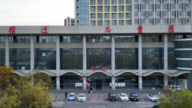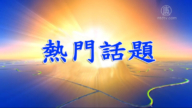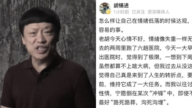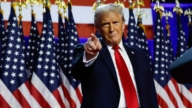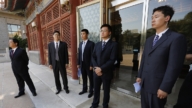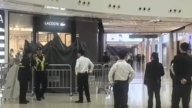【新唐人2011年11月17日讯】《路透社》11号引用两位知情人的消息说,欧盟对北京提出的三个条件说了“不”,外交的僵局让中共政府捏紧了钱袋子。
《路透社》说,据两位直接消息人士透露,中国提出在3个条件下向欧盟提供援助:
1、支持中国在国际货币基金组织(International Monetary Fund)获得更大的影响力;2、承认中国在世界贸易组织(WTO)的市场经济地位;3、取消对华武器禁运。
第一个条件在外交层面上相对简单,但是北京消息人士透露,当欧盟领导人了解,中国的任何投资,都会以扩大它在货币基金的决策参与权,以及推动人民币进入特别提款权(SDR)作为条件,因此,他们给了北京“不”作为答案。
扩大中国在国际货币基金组织内部的决策权,意味着必须要减少欧盟的席次,甚至可能削弱美国事实上享有的否决权。而人民币加入特别提款权,将削减美元的全球影响力,提高人民币地位,扩大中共在国际货币制度运转中的决策权。而目前人民币的汇率仍然由中共政府控制。
《路透社》引用和北京领导层有直接沟通的知情人的话说:“天下没有免费的午餐。如果我们拿不到任何好处,那么领导人只能把自己搞臭。他还说,欧盟拒绝中国的要求——特别是人民币放入SDR的要求,无异于(向中国的)脸上掴了一巴掌”。
欧盟理事会主席赫曼•范龙佩表示,不会在投资上搞什么交易:“我从没听说过什么条件。不管怎样,如果中国愿意投资欧洲金融稳定基金(EFSF),如果他们进一步想投资主权债券,事实上他们已经在做了,那是取决于他们的。这是互利的,但是我们不会在主权债券或EFSF的投资上搞什么交易。”
而第二和第三个条件——承认中国市场经济地位,和取消对华武器禁运,也被国内学者认为“不现实”。
中国社科院国际投资研究中心研究员曹建海表示,市场经济地位的承认要看是否达到了条件,而不是靠援助换取。
评论人士苏明撰文表示,共党仍然操控着相当数量的国企和央企,同时操纵着资源、原料和资金的支配,所以中国大陆仍然是计划经济,而不是自由市场经济。
而欧盟对中国实施武器禁运,是1989年中共血腥镇压六四学生民主运动后开始。欧盟发言人曾表示,欧盟将会维持对华的军售禁令,直到中国在人权问题上有重大改善。
这并不是第一次中共提出有条件援助欧盟遭到拒绝。今年的九月中旬,温家宝在大连的达沃斯论坛上向欧盟喊话,要求欧盟承认中国大陆是自由市场经济,中共可以用外汇购买一部分欧盟国家的股票来作为交换,但遭到了欧盟的拒绝。温家宝的这段言论也引发了西方媒体一连串的批评。
新唐人记者尚燕、王明宇采访报导。
EU Rejects Chinese Offer
Reuters quoted two insider-sources on Nov 11 that the EU
has rejected the three conditions of Beijing, causing the Chinese Communist Party (CCP) to clench its money bag.
According to Reuters, the CCP offered to help the EU
under three conditions:
1. Support China in increasing its influence
in the International Monetary Fund;
2. Accept China’s market position
in the World Trade Organization;
3. Lift the Arms Embargo on China.
The first condition was relatively simple, but according to
source in Beijing, EU leaders gave Beijing a “No" response,
as they learned all China’s policies will be for CCP’s benefit,
like pushing RMB to enter the Special Drawing Rights (SDR).
Expanding CCP’s decision power in the International
Monetary Fund will reduce participation by the EU, even reduce decision power of the US.
Allowing the yuan to enter the Special Drawing Rights
will reduce the influence of the US dollar.
Plus, it will improve the position of the yuan, increasing
China’s influence over international monetary policies.
Currently, the exchange rate of the yuan is still controlled
by the Chinese regime.
Reuters quoted sources in direct communication with CCP
leaders, “There is no such thing as a free lunch.
If we don’t get any benefit, then the leaders will only
discredit themselves.”
The source also said that EU’s rejection of China’ conditions,
especially the yuan to be included in SDR, is like a slap in the face for the Chinese regime.
The second and third condition are also viewed
as unrealistic by mainland scholars.
Cao Jianhao, researcher at Chinese Academy of Social
Sciences International Investment Research Center,
thinks the recognition of market economy status
depends on whether a market meets the standards; it can’t be exchanged for aid.
Commentator Sun Ming expressed that the CCP still controls
many of the businesses, resources, raw materials and money.
Thus mainland China is still a planned economy,
not a free market economy.
EU’s arms embargo on the Chinese regime started after
the Tiananmen Square Student Massacre in 1989.
EU spokesperson has expressed, the EU will continue
the arms embargo until major human rights improvements take place in China.
This is not the first time the EU rejects CCP’s conditional aid.
In mid September, during the Davos Forum in Dalian,
Wen Jiabao asked the EU to accept mainland China as a free market economy.
In return, the CCP was willing to buy some European stocks,
however, the EU rejected the offer.
Wen’s remarks were heavily criticized by Western media.
NTD reporters Shang Yan and Wang Mingyu .


